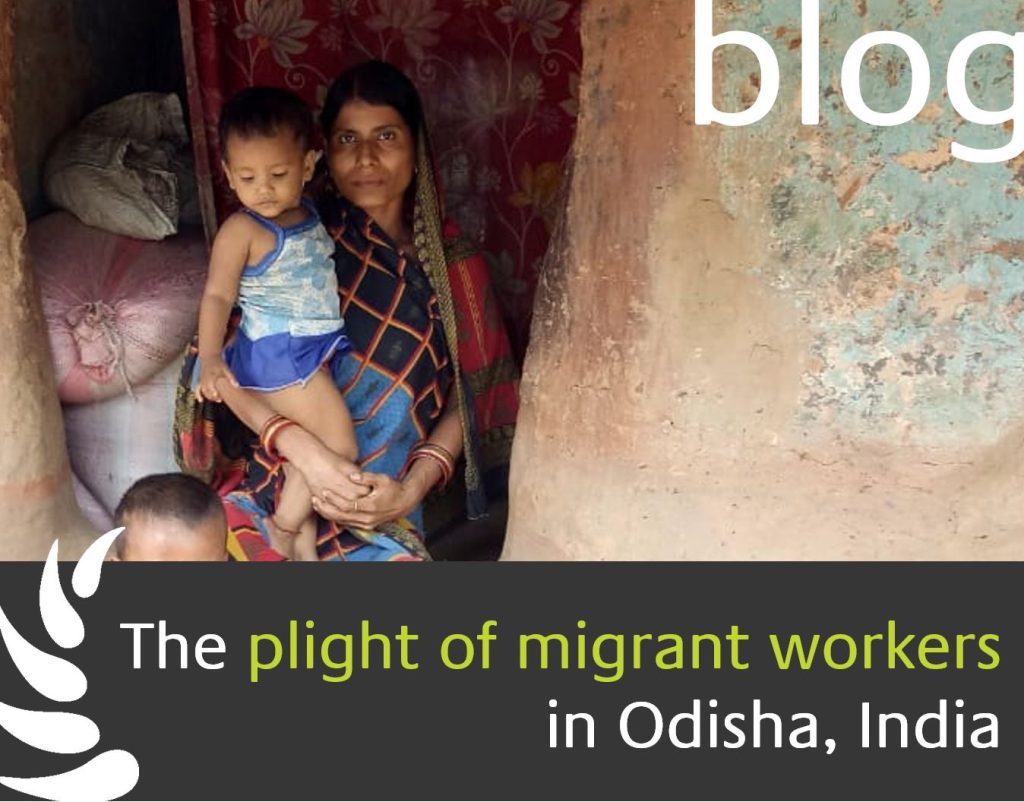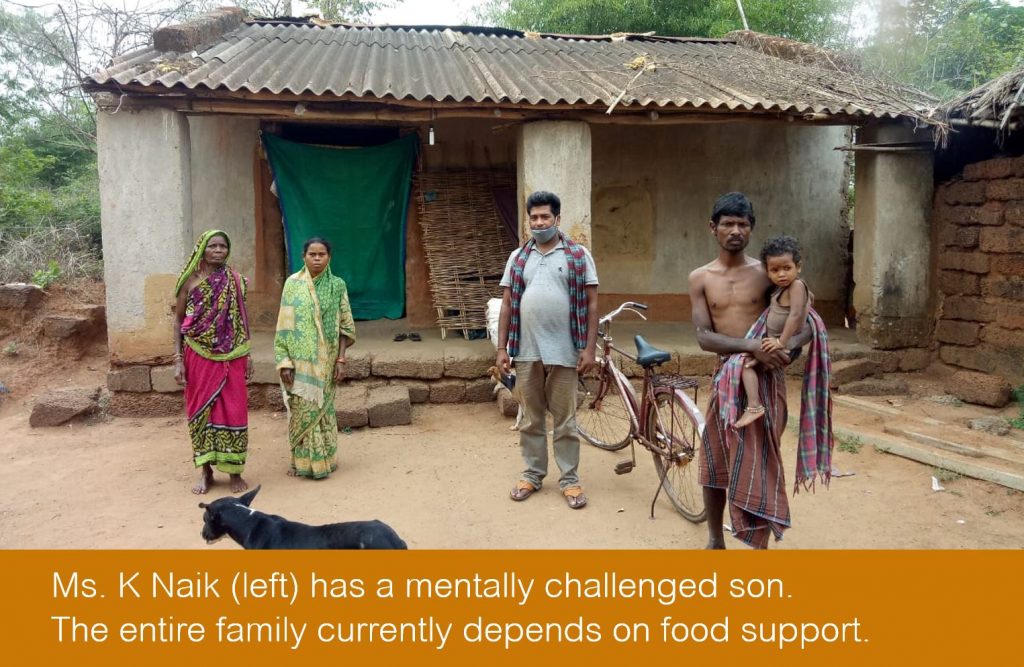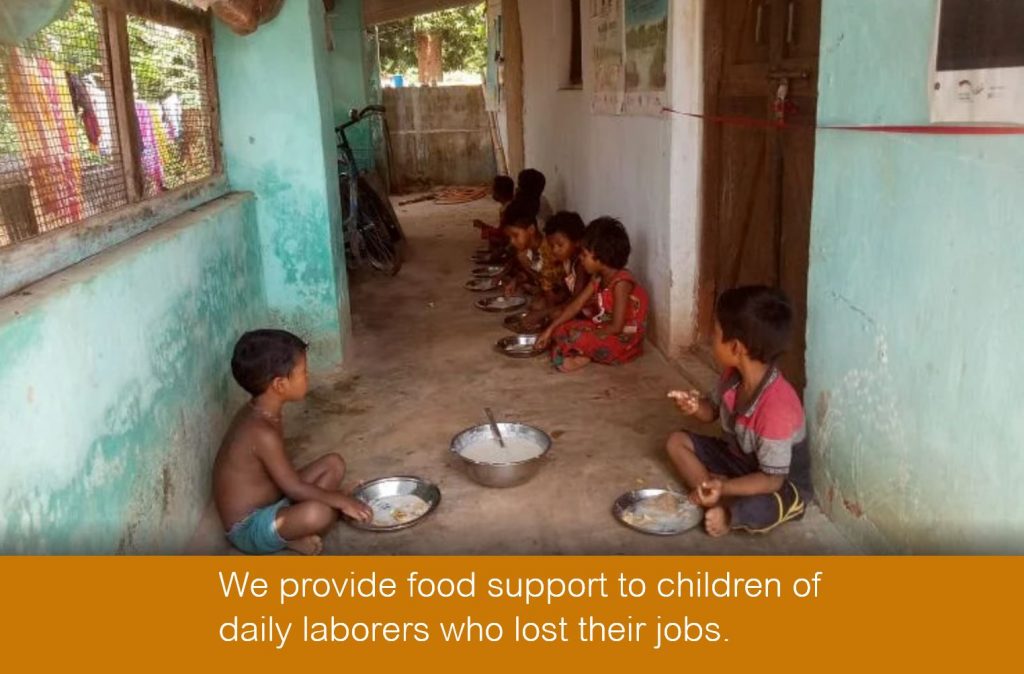The plight of migrant workers
By Meghana Raveendra
Learning about the situation of tribals during the covid pandemic, I asked myself the following questions:
Had I ever had to depend on others to receive food for an unknown period of time?
Did I ever have to struggle to get basic health care access?
Did I ever have to migrate from my home in search for a job to ensure my family has at least two meals a day?
May 2021 has already begun. It has been more than a week since India saw a second wave of the pandemic hitting us with full strength and it is obvious that it is much worse than last year at the same time. While some of us must work from home again, thousands are struggling to get back to their native regions. The sad story of thousands of migrant workers travelling days and weeks through the country to reach their families, repeats itself this year. But today the situation seems to be even worse.
The current wave has damaged our already weakened health care system. But that gives no one the right to completely neglect an already neglected sector of our population – the informal employment sector which hugely consists of migrant workers.
While I was writing about this topic, I received a call from a fellow kanthari – Gouri Shankar Mishra. Gouri lives in Kandhamal district of Orissa and runs an organisation called An-anya which works to eradicate child labour. During the first wave of covid-19 around March last year, he focused on providing essentials to the tribal communities in Balasore and Keonjhar District. Both these districts have a high number of labourers who normally work in other parts of the country as migrant workers.
The young men and women from these two districts due to lack of sufficient agricultural land, migrate in search of work mainly to Hyderabad, Kolkata, Bangalore, and Chennai.
Though both the districts predominantly thrive on agriculture as a primary source of income, only 35% own land. Once they return to their villages, they don’t have any alternative income.
Last year, Gouri motivated the communities to use their backyards to sow vegetable seeds that he distributed. This could have helped them in case more lockdowns would come their way. But as lockdowns relaxed, people started migrating back to cities again. Gouri has observed that in the previous year, there was a registration process for migrant workers to travel. This year there is no such process and hence, it is a lot more chaotic. Migrant workers can only access public transport till the state border. From there however, they have to walk to their villages as other modes of transport are not available.
Last year the amount of covid cases were not as alarming. But the locations they are coming from now have a high number of active covid incidences and there is no way to know if any of them are covid positive till they reach the districts and are quarantined.
Looking at the current situation, Gouri has decided to work on a guided return of the migrant workers and their families as they return to their villages. He is expecting a minimum of 5000 workers returning to each district. For this he works with the district offices to support them in the process of ensuring quarantine facilities. Along with that he has started a campaign to provide essentials like ration and hygiene kits to their families.
The economic condition of workers and their families is extremely poor. They are currently jobless with an uncertainty of when and where they will be employed again.
Additionally, a number of companies and industries where they worked before have refused them their due payment. Therefore, Gouri is not only continuing to provide essentials, but he also tries to work towards providing sustainable livelihood opportunities.
One plan is to continue with the kitchen gardens to be able to sell the vegetables. Additionally, he is working on setting up leaf plate making machines so the migrant workers can resume working in their own villages on making sustainable options for single use cutlery.
It inspires me to see him put so much effort in ensuring migrant workers and their families do not face these situations again and are able to have a respectable life in their own villages with their own families.
If you wish to support Gouri’s work, you can do so through this link for a project to provide 500 migrant workers and their families ration and medical kits – http://www.ketto.org/fundraiser/support-people-in-need



